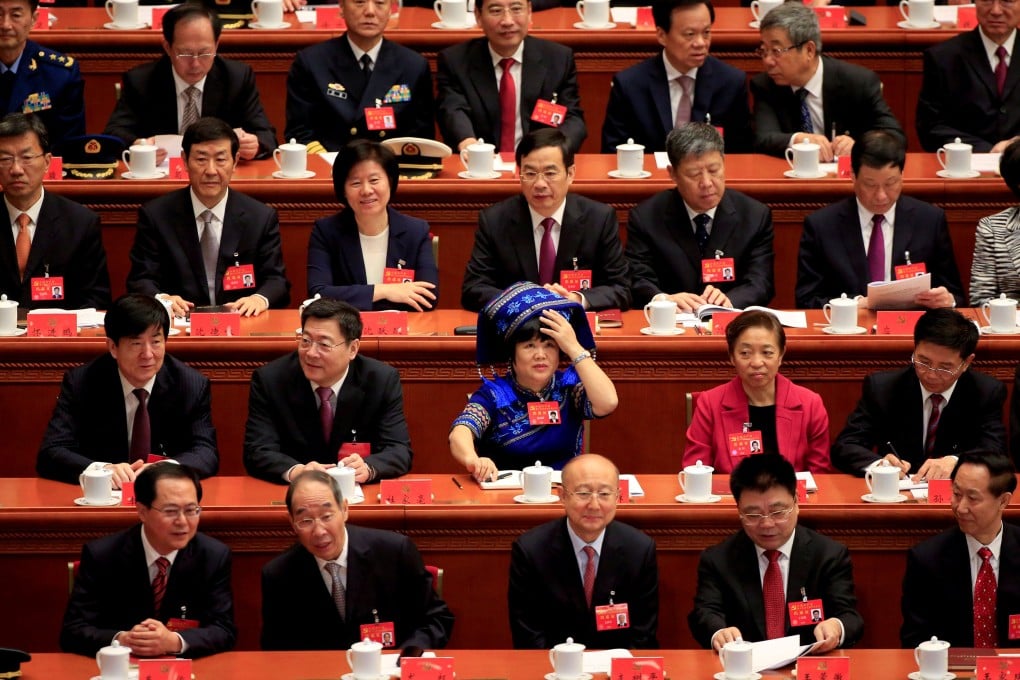Advertisement
Opinion | China cannot achieve gender equality while excluding women from policymaking decisions
- An amendment by Beijing to further safeguard women’s rights is laudable, but claims that change should only come from the top ignore centuries of grass-roots struggles
- China’s lagging position in the World Economic Forum’s gender equality ranking highlights the need to include women at all levels of discourse
Reading Time:3 minutes
Why you can trust SCMP

The cartoon says it all: a man in a suit writing a law book on women’s rights. The illustration was featured in a recent opinion piece in the Global Times, a tabloid linked to the Chinese government, on the draft amendment of the Law on the Protection of the Rights and Interests of Women.
Advertisement
A few days earlier, the proposed changes had been submitted to the National People’s Congress Standing Committee, the country’s top lawmaking body, for deliberation.
Aimed at better safeguarding women’s interests in the workplace, on the internet and at home, the draft laws mark a significant legislative development in China, and I joyfully applauded it, together with millions of others.
However, that opinion piece cooled much of my joy. It argues that a top-level push is the only way to advance women’s rights in China. It attacks “radical” feminism and dismisses the #MeToo movement as “a political tool” to subvert the Chinese government “under the guise of protecting women’s rights”.
Like the cartoon, the author of the piece suggests that the only people who are allowed to write laws are men and they can’t have women telling them what to do.
Advertisement
A top-level push is certainly extremely important in any country. And the draft laws are a highly commendable initiative. They include 24 additional clauses and 48 revisions.

Advertisement
